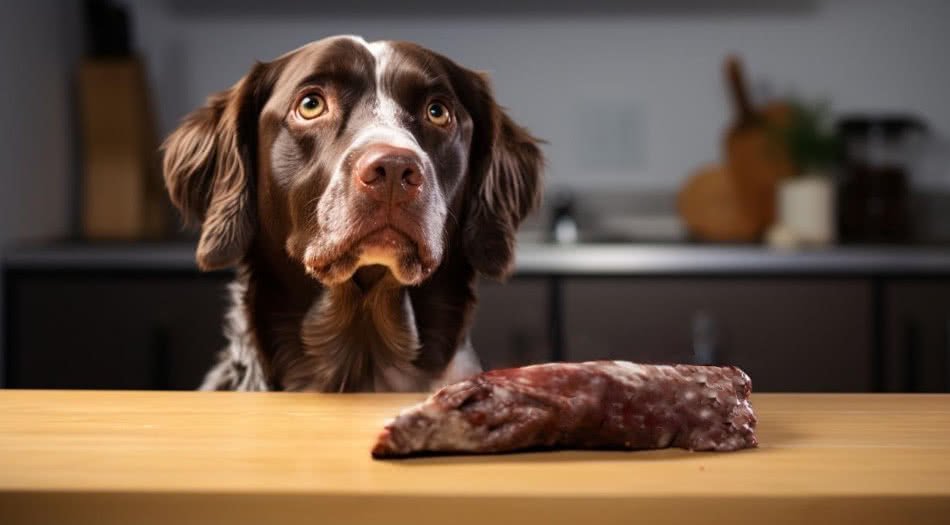You’re preparing a Thanksgiving feast, and your doggo is eagerly watching every move you make in the kitchen. As you prepare the turkey, you wonder, “Can dogs eat cooked turkey neck?” You want to share their holiday joy with their furry friends, but what are the facts, the benefits and the risks?

Before introducing any new foods to your dog’s diet, always consult your vet. Individual dogs may have different intolerances, dietary needs, and health considerations. This article is not a substitute for professional veterinary advice.
Nutritional Benefits of Cooked Turkey Necks for Dogs
Turkey necks can be a nutritious treat for dogs when prepared correctly. They are rich in protein, which is essential for muscle development and overall health. They also have vitamins, and minerals like calcium, phosphorus, and B12, which all help dog health.
Turkey necks also contain collagen, glucosamine and chondroitin, compounds known to support joint health, making them particularly beneficial for older dogs or those with arthritis.
The bones in turkey necks can also help clean your dog’s teeth, reducing plaque and promoting oral health.
However, these benefits only apply when the turkey necks are prepared and served safely.
Potential Risks of Feeding Dogs Cooked Turkey Necks
Despite their nutritional value, cooked turkey necks pose several risks.
- Cooking turkey bones makes them brittle and prone to splintering, which can lead to choking hazards or internal injuries if ingested.
- Splintered bones can cause blockages or tears in the digestive tract, requiring emergency veterinary care.
- Turkey necks can be high in fat, which can lead to pancreatitis in dogs if consumed in large quantities.
- Raw meat can contain pathogens and bacteria such as E. coli and Salmonella, whcih can cause serious health risks to dogs.
So weigh these risks against the benefits before feeding your dog turkey neck.
How to Safely Prepare Turkey Necks for Dogs
To minimize risks of splintered bones causing choking and oesophageal or digestive system injuries, it’s best to avoid giving your dog cooked turkey necks. Instead, consider offering raw turkey necks, which are less likely to splinter.
Ensure the turkey neck is fresh. Always supervise your dog while they enjoy the treat and remove any small or sharp pieces that could pose a danger.
If your dog rushes to gulp down his food, it may be best to avoid bony foods altogether, or feed them by hand to encourage them to take it slower.
Final Thoughts on Can Dogs Eat a Cooked Turkey Neck
While cooked turkey necks offer some nutritional benefits, the risks often outweigh the rewards. If you want to share the holiday spirit with your dog, consider safer alternatives like raw turkey necks or commercially prepared treats designed for canine consumption. Always prioritize your dog’s health and safety, and consult your veterinarian for personalized advice.





